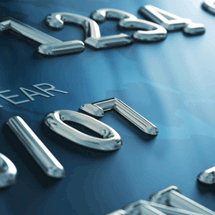 |
are credit cards really bad?
by D. Ray Lewis
Find out more about Free Will Baptist Board of Retirement at www.boardofretirement.com.
|
Today's economy is in a financial crisis. How has this crisis affected you? Many Americans struggle to pay their bills and keep up with the rising cost of living while personal debt continues to spiral out of control.
Are you one of the millions in financial trouble, stressed out because your debt is spiraling out of control? I hope the answer is no, but I’m afraid many who read this article have already experienced the stress created by an urgent financial crisis.
One major reason for the current crunch is plastic—credit cards. Most Americans today carry five to 10 credit cards. The concept of credit cards sounds great. Use your immediate line of credit to purchase big-ticket items for which you need more time to pay.
The problem, however, is that credit cards make it too easy to purchase things you don’t need and can’t afford. If you aren’t careful when using credit cards you may not realize you are overspending until it is too late. Or perhaps you think that meeting the monthly minimum payment keeps your debt under control. This is not always the case.
If you find yourself paying only the minimum amount due on your credit card bills, you have started down the long road of overwhelming finance charges. Many people don’t realize that the minimum payment on a typical credit card covers little more than the monthly finance charge. This means that only half of your payment goes toward the balance on your card. That’s a bad deal for you, but a great deal for the credit card company.
Consider the following sobering example. If you have a $5,000 balance on a card, with an interest rate of 18%, it will take 26 years to pay off the debt by making the minimum monthly payment. When you add the interest to the original amount borrowed, you'll end up paying more than $12,000 to the card company. Of course, this assumes you never use the card again, make every payment on time, and don't incur any fees or penalties.
Other warning signs of over-spending or too much debt include:
-
You charge inexpensive items.
-
You have to juggle your bills.
-
You have no savings account.
-
You get cash back when using your debit card to pay your credit card bill.
-
You consistently charge more each month than you make in payments.
-
You charge items when you have cash on hand to make the purchase.
-
You use your credit card to buy necessities like food or gasoline.
-
You hide the true cost of your purchases from your spouse.
-
You have at least one credit card that is maxed out.
Identifying the warning signs of credit crisis is the first step to correcting it. If you can recognize the warning signs, you can do something about it. It is important to be honest with yourself and your spouse. Money is critical to a marriage or relationship. It is the primary reason couples divorce or separate from one another.
If the warning signs above sound familiar, follow the following steps to regain sound financial footing:
-
Make a list of what you owe.
-
Prioritize your repayments. Pay important bills first.
-
Make a spending plan.
-
Work toward eliminating credit cards.
-
Call your creditors when you are in trouble. Don’t ignore the problem.
-
Get help from a professional consumer credit counseling service.
Once you recognize the warning signs, do something about it. Don't wait for your debt situation to get any worse! Take the necessary steps toward financial recovery and peace of mind. It will be one of the best decisions of your life!
About the Writer: D. Ray Lewis is the director of the FWB Board of Retirement. Find more financial advice at www.boardofretirement.com.
|

